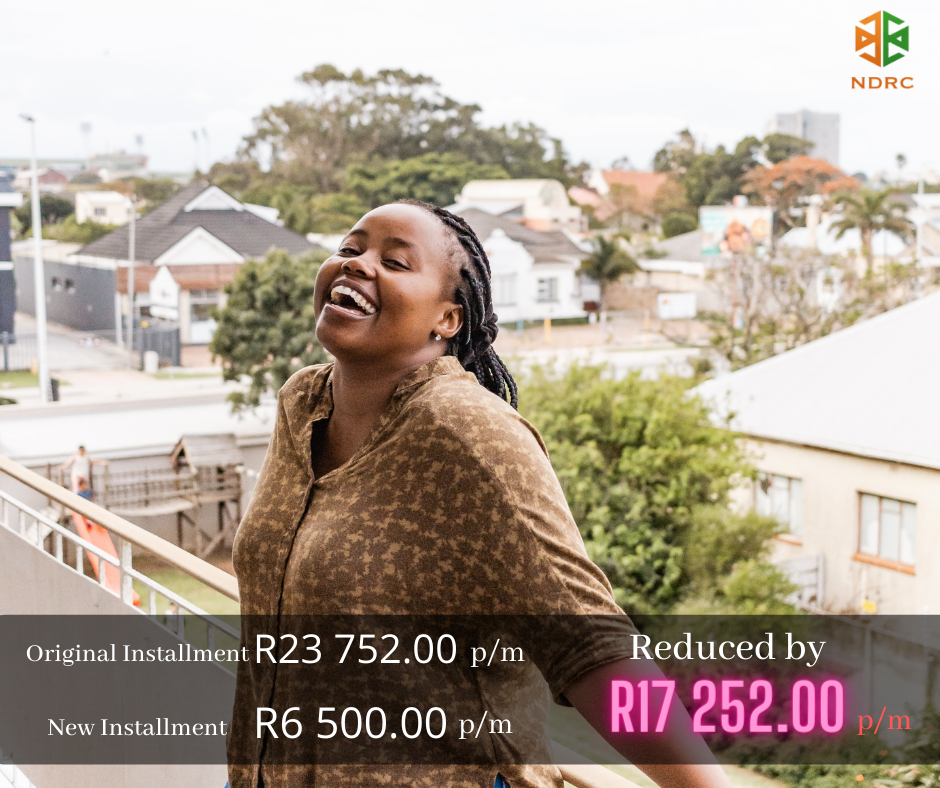Everything That You Need to Know When You Get an Eviction Notice in South Africa
Everything That You Need to Know When You Get an Eviction Notice in South Africa
By The national Debt Review Center
Renting is one of the most common means of accommodation in today’s society, and it’s no wonder. Tenants get to enjoy the comfort and privacy of their own home without having to worry about any upkeep. But renting also has its disadvantages. One such disadvantage is the threat of eviction, which can come out of nowhere and disrupt a tenant’s life. Luckily for you, this article will give you all the information that you need to know when you get an eviction notice in South Africa!
What is an Eviction Notice?
If you are a tenant in South Africa, you may be wondering what an eviction notice is. An eviction notice is a document that is served to a tenant by their landlord, which tells the tenant that they must leave the property within a certain period of time. The eviction notice will usually state the reason for the eviction and will give the tenant a specific date by which they must vacate the premises.
If you have been served with an eviction notice, it is important to take action immediately. You should first try to negotiate with your landlord to see if there is any way to avoid being evicted. If this is not possible, or if you do not feel comfortable doing so, you can contact a lawyer for advice on your legal rights and options.
Once you have received an eviction notice, you will usually have between 7 and 30 days to vacate the property. If you do not leave by the specified date, your landlord can apply to the court for an order of eviction. This means that the sheriff could come to your home and remove you by force if necessary.
If you are facing eviction, it is important to seek professional help as soon as possible so that you can understand your rights and options.
Types of Evictions
There are two types of evictions in South Africa, namely the section 7(1) eviction and the section 8 eviction.
A section 7(1) eviction is when your landlord wants to evict you because you have breached the terms of your lease agreement. For example, if you have not paid your rent on time or have caused damage to the property.
A section 8 eviction is when your landlord wants to evict you for reasons that are not related to a breach of the lease agreement. For example, if your landlord wants to sell the property or use it for personal purposes.
When can a landlord evict you?
If you are a tenant in South Africa, you may be wondering when your landlord can evict you. The answer to this question depends on the reason for the eviction. If your landlord has a valid reason for wanting to evict you, such as not paying rent or damaging the property, they can give you an eviction notice. This notice will state the reasons for the eviction and will give you a certain amount of time to leave the property. If you do not leave within the time frame specified in the notice, your landlord can take you to court to have you forcibly removed from the premises.
How long do you have to get out of the property?
If you have been served with an eviction notice in South Africa, you will usually have 14 days to vacate the property. However, if you do not leave the property within this timeframe, the sheriff of the court can forcibly remove you from the premises.
How much notice do you need to give to your landlord before you leave?
It is important to note that you cannot be legally evicted without a court order. However, your landlord can give you notice to leave the premises.
If you are on a month-to-month lease, your landlord must give you at least 20 days’ notice before asking you to leave. If you have a fixed-term lease, your landlord can only ask you to leave early if:
- You have violated the terms of your lease agreement
- You have not paid rent
- You have caused damage to the property
- The landlord needs the property for their own personal use
If your landlord gives you notice to leave, they must also give you a written notice specifying the reason for eviction. This written notice must be served on you either personally or by registered mail.
Can I be evicted without notice?
If you are a tenant in South Africa, you may be wondering if you can be evicted without notice. The answer is yes, but only in certain circumstances.
If the landlord has given you a written notice to vacate the premises within 14 days and you have not complied, the landlord can apply to the court for an eviction order.
If you have been served with an eviction order, you will be required to vacate the premises within 7 days. If you do not comply, the sheriff of the court will evict you from the premises.
It is important to note that you cannot be evicted without a court order unless the landlord has given you written notice to vacate first. If you are facing eviction and have questions about your rights, it is best to speak to a lawyer.
Is there a way to stop an eviction if I am not in breach of my contract or lease agreement?
If you are facing eviction in South Africa, it is important to understand your rights and options. If you are not in breach of your contract or lease agreement, there may be ways to stop the eviction.
If you have been served with an eviction notice, you will likely have a few weeks to vacate the premises. However, if you do not wish to leave, there are a few options available to you.
First, you can try to negotiate with your landlord or property manager. If they are willing to work with you, they may be open to extending your lease or finding a new place for you to live.
Second, you can file an objection with the court. This must be done within seven days of receiving the eviction notice. The court will then review your case and decide whether or not to allow the eviction to proceed.
Third, you can apply for emergency relief from eviction. This is only available in certain circumstances, such as if you have children under the age of 18 or if you are disabled. To apply for emergency relief, you will need to complete an application form and submit it to the court.
fourth, if none of these options are available or successful, you may also be able resist the eviction by force. However, this is not recommended as it could result in violence or arrest.
Our Recommendation
If you are facing eviction, there are a few things you can do to try and avoid it. Firstly, make sure you keep up with your rent payments. If you are behind on rent, start catching up as soon as possible. Secondly, communicate with your landlord or property manager.
If there is a problem that is causing you to fall behind on rent, let them know and try to work out a solution together. Lastly, if you are served with an eviction notice, don’t ignore it! Show up to court and explain your situation to the judge. With proper communication and a willingness to work towards a solution, you may be able to avoid eviction.
You might be over-indebted – Contact one of our professionals for an assessment on 0410125036 or book a consultation below.
You can book an appointment with one of our professionals by following these easy steps. Click the book an appointment page on the above menu or Call 0410125036 or Send a WhatsApp to 0727703674Conclusion
If you find yourself in the situation of receiving an eviction notice, it is important to know your rights as a tenant. This article has provided some valuable information on what to do if you are facing eviction in South Africa. Remember, you have options and there is help available if you need it. Don’t hesitate to reach out to a legal professional or Rental Housing Tribunal near you if you need any assistance in fighting your eviction.







0 Comments